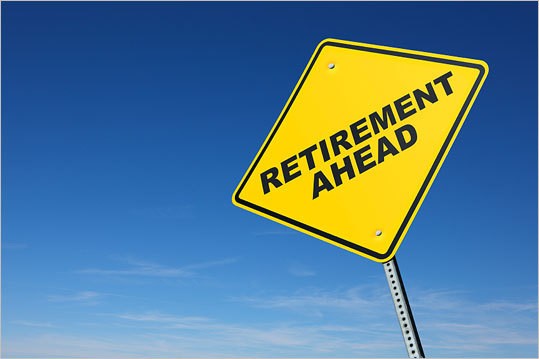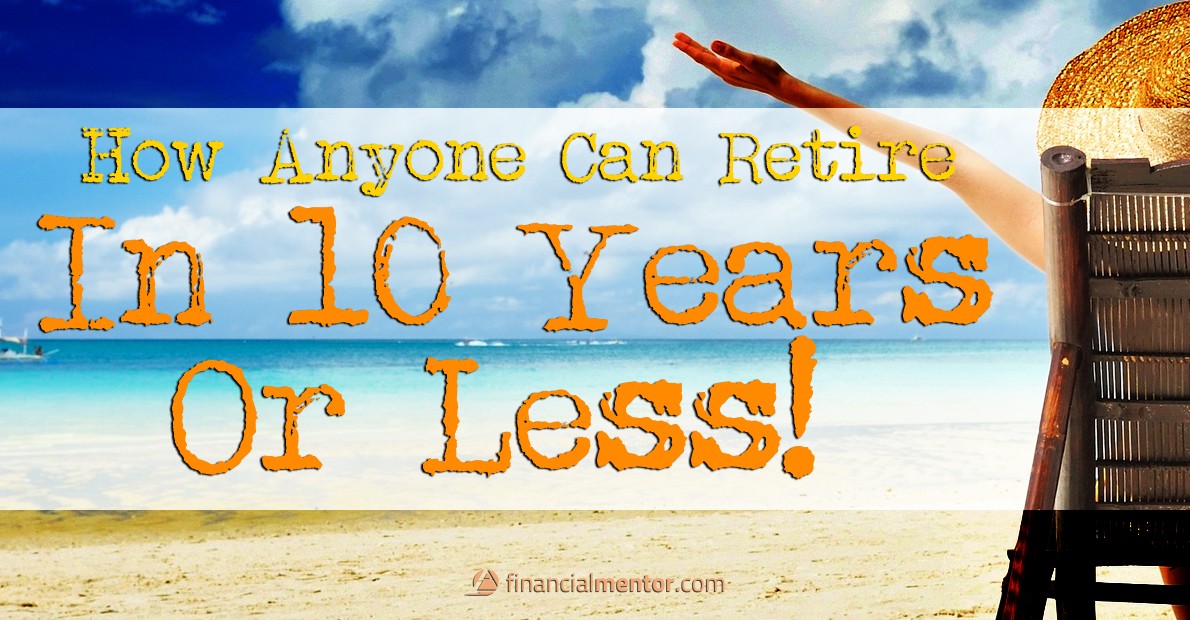How to Retire Early
Post on: 16 Март, 2015 No Comment

Published on February 24th, 2012
Though many readers of this site have modest financial goals, others are more ambitious. Many want to get rich. (Thats not surprising; after all, this blog is called Get Rich Slowly.) But I think most GRS readers are aiming at something in between.
For instance, Charlotte wrote recently to ask about a goal that many of us have. She wants to know how to make early retirement a reality. Heres Charlottes message:
My husband is 30 and Im 28. Our main personal finance goal is to retire early or become financially independent. so that we have freedom to choose what to do with our time. We understand that to achieve independence, you need to generate passive income that exceeds your expenses. Whats the best way to do that?
Were putting aside 10% and 17% into our 401(k)s, respectively, but if you cant withdraw from your retirement accounts until age 59 1/2, how do you bridge the gap if, lets say, you want to retire at age 52? We know were a long way from financial independence, but we want to start planning how to get there. Weve covered the basics of personal finance (emergency fund, no credit card debt, spend less than you earn, fund retirement). Now what?
When people ask me about early retirement, I mention two books.
The first is the classic Your Money or Your Life . which has a great section spelling out financial independence and how to achieve it. The authors define financial independence as having enough and then some. They ask readers to track income, expenses, and investment income, plotting each of these on a chart like so:
A chart from the book. To learn more, buy a copy (or borrow one from your library).
The entire book is about finding ways to get the investment income line (low on the graph) to meet (and then cross over) the expenses line. At this crossover point, investment income exceeds monthly expenses. The authors write:
The Crossover Point provides us with our final definition of Financial Independence. At the Crossover Point, where monthly investment income crosses above monthly expenses, you will be financially independent in the traditional sense of that term. You will have a safe, steady income for life from a source other than a job.
Reaching the Crossover Point means that, if you wanted, you could stop working for money. For most people, this never occurs.
The second book I recommend is the lesser-known (but just as excellent) Work Less, Live More by Bob Clyatt. Clyatt encourages readers to reconsider traditional notions of retirement and early retirement, and to instead focus on what he calls semi-retirement.
In semi-retirement, you work a little and you play a little. You build your life around your personal priorities. The work gives you some income so that you have to rely less on your savings. (Or, ideally, you dont touch your savings at all.)
Note: Because I sold this blog. Im fortunate to actually be in a position of semi-retirement already. My nest egg isnt large enough to allow me to do nothing nor would I want that but I do have the liberty pursue activities that I enjoy or that are meaningful to me. (Often, theyre the same.) That Im able to earn a living doing these things is a bonus, and allows me to avoid tapping my savings.
But lets get back to Charlottes question. Whats the best way for her to achieve to financial independence? Or early retirement? Or semi-retirement? As you can probably guess, the answer is the same as for getting out of debt or saving for a down payment or pursuing any other sort of large financial goal. That is, Charlotte should focus on earning, spending, and saving .

- Earning is your ability to bring in money. Your goal, no matter what your financial objective, should be to boost your income as much as possible. Last year I described how I earn my money. Bottom line: I try to have many different sources of income, each producing a little bit at a time. This diversification means I dont have to panic if one source dries up. (Of course, writing for GRS is my main source of income.)
Charlotte and her husband have been doing things. They need to continue doing them, and to do more of them. Because theyre in what I call the third stage of personal finance , they need to practice patience. In time, theyll reach their goal. For now, they just need to keep being smart with money.
Note: At the same time, Charlotte should be sure she has room in her budget for fun. If shes doing all the right things but not enjoying life, shes going to be less inclined to continue making these choices. Its important to budget for the fun stuff too.
All of this is Big Picture stuff, though. Its the road map that Charlotte (or anyone) can use while marching toward early retirement or other financial goals. I get the impression that shed actually like the GRS readers to give her some feedback on the details of achieving this dream.
What do you think? Whats the best way for Charlotte to reach financial independence? Itd be great to hear from folks who have actually managed this, but I also think it would be helpful to hear from those who have this as a goal. What steps are you taking? What investments have you made? How do you keep your costs down? How do you keep from getting bored during the years and years of waiting?
GRS is committed to helping our readers save and achieve their financial goals. Savings interest rates may be low, but that is all the more reason to shop for the best rate. Find the highest savings interest rates and CD rates from Synchrony Bank. Ally Bank. GE Capital Bank. and more.














